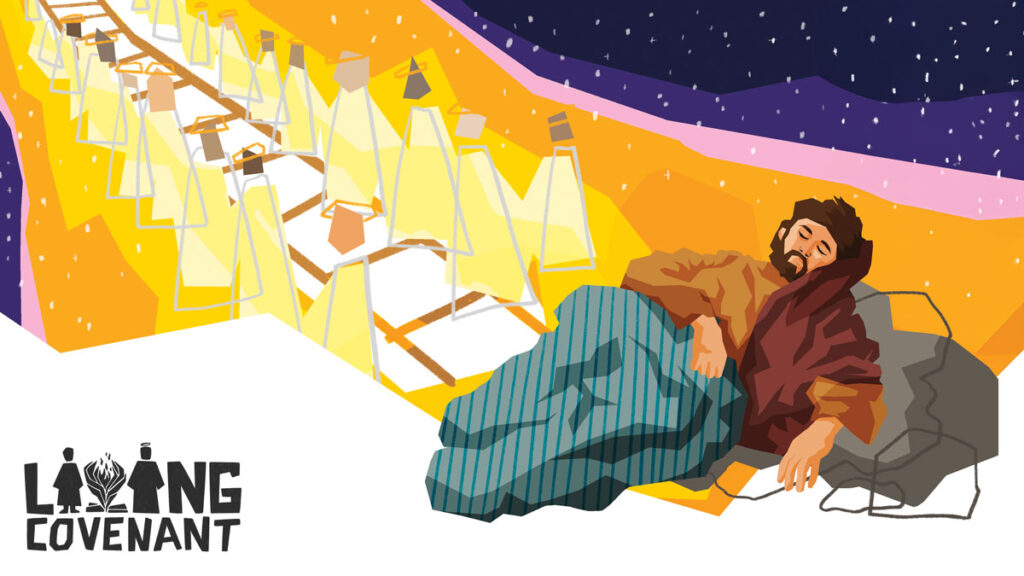There are some stories in Scripture we turn to for inspiration and others we return to because they won’t let us go. Saul, son of Kish, the slayer of thousands, Israel’s first king, is one of those stories that refuses to let go of me. His story is not a tale of glory crowned with triumph, but of unfulfilled promise and broken dreams that unravelled thread by thread. And perhaps that’s why I find myself drawn back to him . . . not because he was such a success, but because he failed in ways that I can understand and even relate to, albeit reluctantly.
He stood head and shoulders above the people (1 Samuel 10:23). Chosen by God. Anointed by Samuel. Destined for greatness. The crown was his for the taking, but his impatience and lack of true repentance left him always comparing himself with others and never satisfied with the results. His reign began with triumph only to end in tears. And sadly, I find echoes of my own struggles in his life. Maybe you will too?
Called while chasing donkeys
It begins with a mundane errand. Saul is out chasing his father’s lost donkeys. He’s not hunting giants or slaying dragons. He’s just a young man working for his family. And yet, during this ordinary day, God interrupts. This seems to be a theme with Him. Right when you least expect it, God shows up. Not in the thunder but in the whisper, not through amazing achievements but through quiet appointments. Saul didn’t seek the crown. It found him.
And when it does, he resists it. He asks, “Am I not a Benjamite, from the least of the tribes?” (1 Samuel 9:21). He sees himself as small and insignificant. Unworthy. His story is punctuated by this inner hesitancy, the gnawing suspicion that he doesn’t belong. He is an outsider who never really fits in. Today, we might even call it imposter syndrome. But in Saul, it festers and weeps. It becomes more than doubt, as it takes control of his identity.
I know that whisper. I have heard it a thousand times. Maybe you have, too. The voice that says, “You’re not enough,” even when God says, “You are Mine.” In Saul’s life, we see this dangerous truth unfold. It is not our calling that crowns us, but the voice we choose to believe. Will you listen to God? Or obey the imposter?
A kingdom fractured from the inside out
Initially, Saul leads with great promise. He wins battles. He inspires confidence. But slowly, cracks appear. He begins to fear the people more than he fears the Lord. Afraid of losing favour with his followers. He grows impatient. Disobedient. Defensive. And over time, the fragile framework of his image replaces the firm foundation of obedience.
It’s more of a slow erosion than a sudden collapse. He does not fall dramatically as a wicked man but his life gently unfolds as a wounded one. This is the dangerous descent into life without God at the helm.
Scripture says that “an evil spirit from the Lord tormented him” (1 Samuel 16:14). This phrase seems peculiar to modern ears, but the symptoms are fearfully familiar. As Saul descends into darkness with increases in mood swings, paranoia, depression, rage, we are able to see that all is not well. Today we might call this a mental health crisis. Then, it was seen as spiritual torment. Perhaps it was both. In my work as a Christian counsellor, I have described mental health issues and spiritual oppression as two hands with fingers intertwined to the point that it is difficult to tell the two apart from one another at times.

But even as Saul wrestles with these forces we still see God’s compassion. Before David ever raises a sword, he lifts a harp to soothe this tortured mind, playing music in Saul’s court—not as a warrior, but as a healer. It is a divine act of mercy. God is not in a hurry to replace Saul. He tries to soothe him and bring healing through music. Before judgement, He sends music.
I’ve felt the pull of Saul’s darkness—depression, burnout, the ache of failure and unfulfilled comparisons. But I’ve also felt the gentle hand of God sending me people, songs and reminders of His grace. In Psalm 31:12, David writes, “I am forgotten as though I were dead; I have become like broken pottery.” A reminder for us all that even kings can crack, but broken pottery can be mended by our Redeemer.
Like kintsugi, the Japanese art of mending fractured pottery with gold, God does not hide our brokenness. He highlights it to display His strength that is made perfect in our weakness (2 Corinthians 12:9).
The God who waits
If I had written Saul’s story, I would have removed the crown early. But God lets him reign for 42 years (Acts 13:21). Forty-two years of a tragic, downward spiral. Why?
Because God is not only just. He is patient.
We often measure God’s presence by our progress in life. If we are successful, God must be working. But I believe God measures by presence not progress. He wants Saul. Not just his success, but rather a relationship. And so, time after time, He gives the king multiple opportunities to return to that saving relationship that we all need and desire in our lives. Vicariously, we read Samuel’s warnings, listen to Jonathan’s loyalty, feel David’s mercy and even experience Saul’s enemies who all become instruments of God’s grace drawing us back to a better life filled with His presence.
The tragedy is not that Saul failed. It’s that he never returned. He let shame speak louder than repentance. He let his fear overpower grace.
But the door never closed for this wayward king. That’s the aching beauty of this story. God doesn’t bolt the door shut because of our failures. He leaves it ajar. And if you find yourself wandering, doubting, breaking . . . just remember that it’s still open, and if you’re reading this, you’re still invited to come and dine with Him, for eternity.
When kings stand alone
By the end, Saul is utterly alone. This isolation is a consequence. Saul pushed people away. He threw spears instead of seeking help. There was a time when I was living in my car, burnt out and depressed that I was tempted to do the same: to withdraw, to hide from everyone in shame. But God was always there showing me that healing happens in community not in isolation. Saul’s story teaches us that secrecy breeds destruction. But vulnerability leads to redemption.
We are all cracked vessels. We all wear crowns we weren’t born for in some form or another. Titles, roles, responsibilities and rumours. But God is not looking for perfection; He is already perfect. Instead He is searching for people willing to be made whole, in His image, despite their shortcomings and failures. Willing to weep and be restored. Willing to come home to dwell with Him in the royal courts of heaven, where the King of kings abides—the One who heals us with His song.
The One who turns brokenness into beauty.
Don’t allow the noise of this world to swallow you. Choose community over isolation.
Seek healing, so that those stories that seem to refuse to let go of you no longer define who you truly are—a child of the True King.
Blake Penland is a counsellor and member at Central Coast Community Church, NSW.






